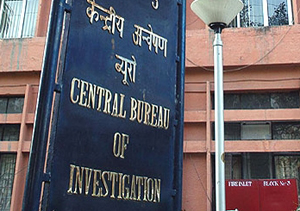 New Delhi, Nov 8: A day after the Gauhati High Court order held as unconstitutional the setting up of CBI, Government today said it will appeal against the verdict.
New Delhi, Nov 8: A day after the Gauhati High Court order held as unconstitutional the setting up of CBI, Government today said it will appeal against the verdict.
"...The DoPT intends to file an appeal. So an appeal will be filed against the order (in the Supreme Court)," Law Minister Kapil Sibal told reporters here.
DoPT is the administrative ministry for CBI. Sibal said DoPT has discussed the issue with him and it was decided to file an appeal.
Earlier in the day, Minister of State for Personnel V Narayanasamy met Prime Minister Manmohan Singh apparently to discuss the fallout of the verdict.
"The judgement is patently wrong. It is bound to be set aside. We are certainly going to challenge it and the appeal is likely to be filed in the Supreme Court latest by Monday," Additional Solicitor General P P Malhotra had told PTI.He had appeared before the HC in the case.
In a curious judgement, the Gauhati High Court had yesterday struck down the resolution through which the Central Bureau of Investigation was set up and held all its actions as "unconstitutional".
The judgement by the division bench, comprising justices I A Ansari and Indira Shah, came on a writ petition filed by one Navendra Kumar challenging an order by a single judge of the High Court in 2007 on the resolution through which CBI was set up.
Malhotra contended that the government resolution on the formation of the CBI has been held valid by the Supreme Court time and again in a number of judgements.





Comments
Add new comment